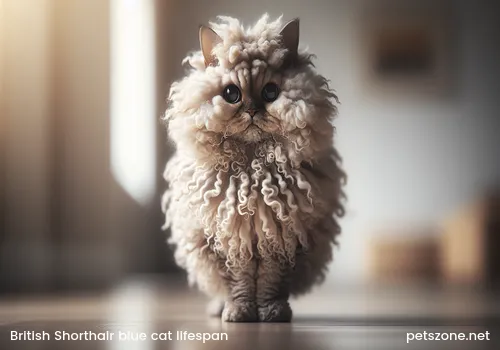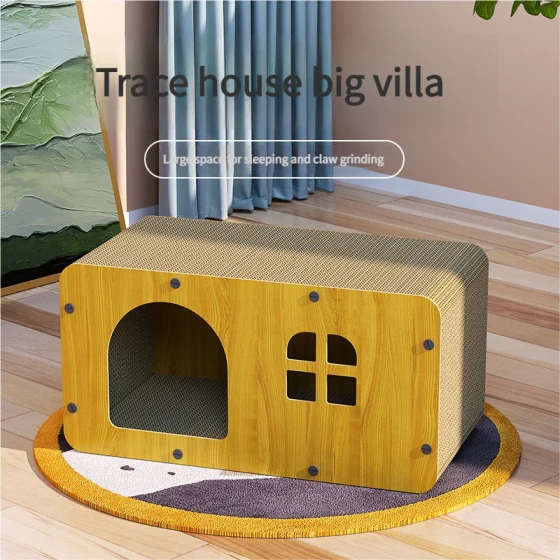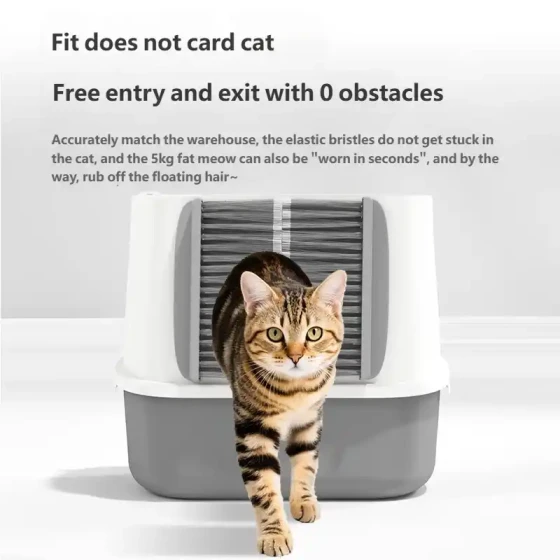British Shorthair Blue Cat Lifespan_Average Lifespan of Blue Cats
British Shorthair blue cats, as a color variant of the British Shorthair breed, are loved for their round bodies, gentle smiles, and mild temperaments, making them favorites among many cat owners. While enjoying the joy they bring, people inevitably worry about a practical question: How long can these adorable British Shorthair blue cats accompany us? Generally speaking, the average lifespan of British Shorthair blue cats is about 12 to 16 years, but with proper care, it is very possible for them to live 18 or even over 20 years.
A cat’s lifespan is influenced by various factors, much like humans. Besides innate genetics, living conditions, diet, and medical care all play crucial roles. Understanding these factors and adopting scientific care methods can greatly increase the chances of your British Shorthair blue cat becoming a “long-living star.”

Factors Affecting the Lifespan of British Shorthair Blue Cats
1. Genetics: Innate Basis Determined by Birth
Just like certain family lines in humans carry longevity genes, a cat’s lifespan is closely tied to genetics. Healthy parent cats are more likely to give birth to healthy kittens, reducing the risk of hereditary diseases. The British Shorthair breed is generally healthy overall but has some genetic diseases to watch for, such as Polycystic Kidney Disease (PKD) and Hypertrophic Cardiomyopathy (HCM). Responsible breeders usually conduct genetic testing on breeding cats to minimize the spread of these hereditary diseases.
2. Living Environment: Indoor or Outdoor, That is the Question
The living environment greatly impacts a cat’s lifespan. Compared to outdoor cats, indoor cats usually live longer. The outside world is exciting but full of dangers such as traffic accidents, fights with other animals, parasites, and infectious diseases. A warm, clean indoor environment can effectively reduce these risks, allowing cats to live more safely and healthily.
3. Diet and Weight Management: Good Nutrition Means Longer Life
“Health comes from the mouth” applies to cats as well. A balanced diet is fundamental to feline health. High-quality cat food should be rich in protein and provide essential vitamins and minerals. British Shorthairs naturally have a larger frame and tend to gain weight easily. Poor weight control can lead to a series of health problems such as diabetes, arthritis, and heart disease, shortening lifespan. Scheduled and measured feeding is essential, avoiding “all you can eat” buffet styles, and adjusting portions according to the cat’s age and activity level to maintain a healthy weight.
4. Medical Care: Regular Check-ups and Vaccinations Are Guardians
Just like humans need regular check-ups, cats also need veterinary examinations regularly. Routine health checks help detect and treat potential health problems early. Timely vaccinations can prevent some fatal infectious diseases. Additionally, spaying and neutering are considered helpful in extending a cat’s lifespan, reducing the risk of certain reproductive system diseases.
5. Daily Care and Emotional Companionship: Details Determine Longevity
Careful daily upkeep also adds to a cat’s health. For example, regular grooming reduces shedding and promotes blood circulation. Regular brushing or providing dental treats helps maintain oral health and prevent periodontal disease. Moreover, cats need their owner’s companionship and interaction. Long-term loneliness and lack of attention can lead to depression and other psychological issues, negatively affecting health. Playing together not only increases their activity but also deepens your bond.
How to Help Your British Shorthair Blue Cat Live Longer?
Knowing the factors affecting lifespan, we can take targeted measures to help your British Shorthair blue cat live longer, making this “blue” companionship last longer:
- Provide high-quality, balanced diet: Choose premium cat food suitable for the cat’s age and condition, and control feeding amounts to avoid obesity. Consult a veterinarian for more specialized dietary advice.
- Encourage moderate exercise: Although British Shorthairs are not as active as other cats, appropriate exercise is still important. Use toys and teaser wands to guide them to play, help burn calories, and maintain a healthy physique.
- Offer a safe and comfortable living environment: Keep your cat mainly indoors to avoid outdoor dangers. Provide clean litter boxes, cozy resting areas, and scratching posts at home.
- Regular health checks and immunizations: Take your cat to the vet annually for a thorough health exam and vaccinate and deworm according to the vet’s advice.
- Pay attention to oral health: Brush your cat’s teeth regularly or provide dental products to prevent oral diseases.
- Ensure ample water supply: Always provide access to clean, fresh water. Placing several water bowls or using a pet water fountain can increase water intake and help prevent urinary tract problems.
- Give plenty of love and companionship: Spend time with your British Shorthair blue cat, interact, play, and groom to make them feel loved and secure.
Common Health Problems of British Shorthair Blue Cats
Although British Shorthairs are generally healthy, understanding some common health issues they may face is necessary to detect and treat them early:
- Hypertrophic Cardiomyopathy (HCM): A heart disease causing thickening of the heart muscle, affecting cardiac function.
- Polycystic Kidney Disease (PKD): A hereditary kidney disease where cysts filled with fluid form in the kidneys, impairing kidney function.
- Urinary System Diseases: Including cystitis, urinary stones, related to water intake and diet factors.
- Obesity: As mentioned before, British Shorthairs tend to become overweight, leading to various health problems.
- Dental and gum issues: Such as periodontal disease, requiring regular care.
- Respiratory problems: Due to their relatively flat faces, British Shorthairs may be prone to respiratory infections.
Early detection of signs like loss of appetite, lethargy, difficulty urinating, or abnormal breathing and timely veterinary visits are crucial for safeguarding their health and extending their lifespan.
Frequently Asked Questions
How long do British Shorthair blue cats usually live?
The average lifespan of British Shorthair blue cats is about 12-16 years, but with proper care, they can live up to 18-20 years or longer.
What factors affect the lifespan of British Shorthair blue cats?
Many factors affect their lifespan, mainly including genetics, living environment, diet habits, weight management, medical care, daily maintenance, and emotional companionship.
How can you tell if a British Shorthair blue cat is entering its senior years?
Generally, British Shorthairs start senior phase around 8-9 years old. Senior cats may show signs such as reduced activity, increased sleep, loose or missing teeth, and decreased hearing or vision.
Are British Shorthair blue cats prone to illnesses?
British Shorthair blue cats are generally healthy but have some common health concerns like Hypertrophic Cardiomyopathy, Polycystic Kidney Disease, obesity, urinary system issues, and dental problems. Scientific feeding and regular vet visits can effectively prevent and manage these issues.
Summary
British Shorthair blue cats have become beloved members of many families with their unique charm. Their average lifespan is more than a decade, but that is not a limit. By providing scientifically balanced nutrition, a healthy and safe living environment, timely and effective medical care, and loving companionship, as cat owners, we can maximize the lifespan of our British Shorthair blue cats and let them enjoy more wonderful time by our side. Love them, give them the best care, and let this blue bond last long and strong.



